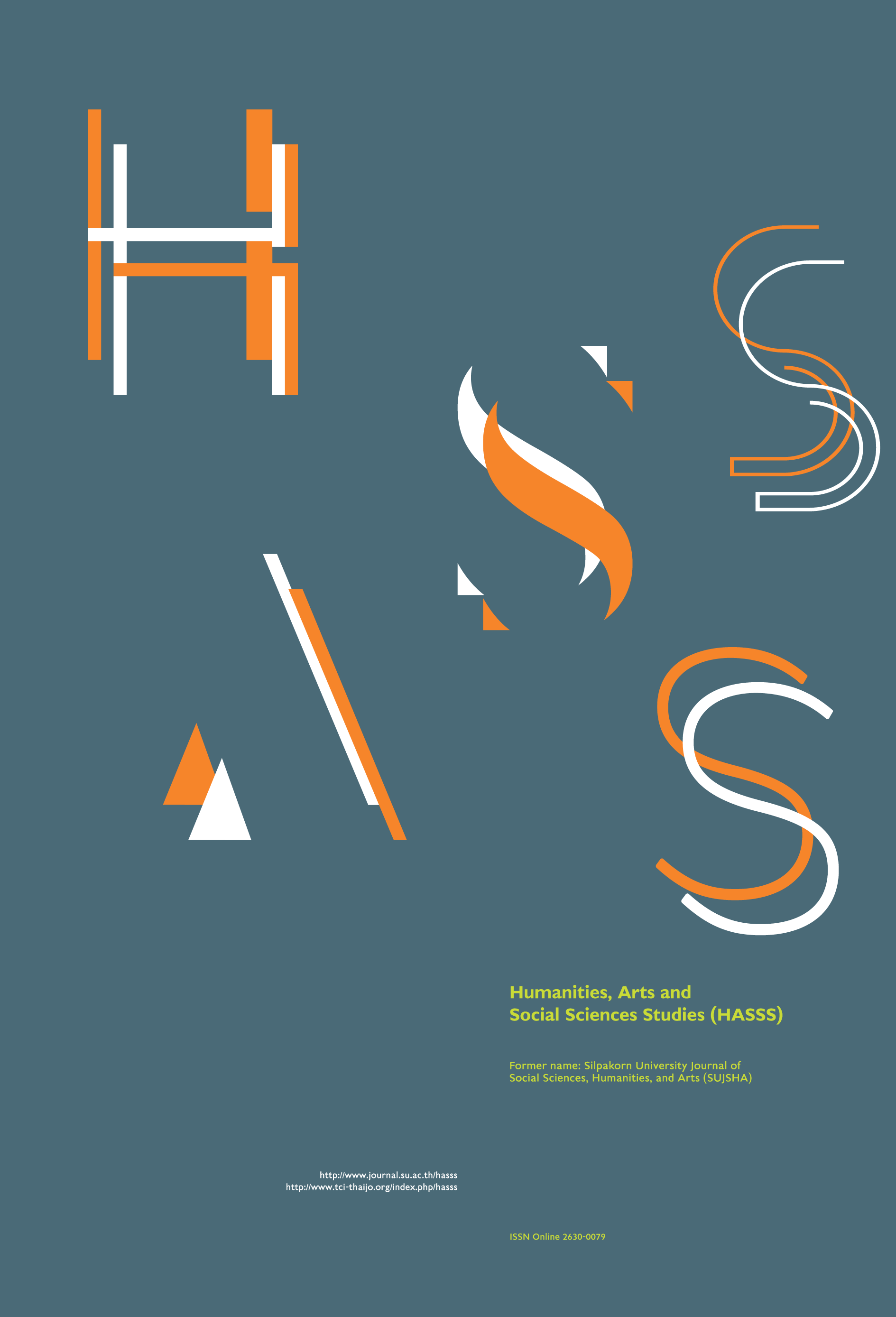The Effect of Human Capital Development on Sustainable Organization of Thai SMEs
Main Article Content
Abstract
The purpose of this research is to study causes and effects of Human Capital Development that lead to sustainable organization of Thai SMEs firms in Phetchaburi Province. Data has been collected by questionnaires and interviews from 214 local entrepreneurs, and analyzed in the forms of mean, standard deviation, percentage and frequency. Testing hypothesis by multiple and simple regression analysis, it showed that Human Capital; composing of Intelligent Capital, Social Capital and Emotional Capital have been developed from Knowledge, Skills, Attitude, Social Capital and Quality of Life. All of these variables caused by Internal Organization Factors, especially Leadership and Organizational Culture. For External Organization Factors, the two crucial variables were Technology and Social. A Sustainable Organization (defined by Corporate Performance, Stakeholder Satisfaction, Employee Engagement, Efficiency System and Democratic Circumstance) is influenced by Human Capital Development. The research suggested that the persons involved should take the issue of Human Capital Development to generate the comparative advantage business strategy not only for local firm’s survival, but also for a sustainable development organization.
Downloads
Article Details
All rights reserved. Apart from citations for the purposes of research, private study, or criticism and review,no part of this publication may be reproduced, stored or transmitted in any other form without prior written permission by the publisher.
References
Basuki, B. and Kusumawardhani, T. (2012) Intellectual capital, financial profitability, and productivity: An exploratory study of the Indonesian Pharmaceutical Industry. Asian Journal of Business and Accounting 5(2): 41-67.
Dae-Bong, K. (2009) Human Capital and its measurement. Paper Presented at the conference on the 3rd OECD World Forum on Statistics, Knowledge and Policy Charting Progress, Building Visions, Improving Life. Busan, Korea October 27-30.
Eccles, R. G., Perkins, K. M. and Serafeim G. (2012) How to Become a Sustainable Company. MIT Sloan Management Review 53(4): 42-51.
Evans, G. (2007) ROI: Measuring the contribution of Human Capital. NY: Spring.
Feimianti, E. and Anantadjaya, S. (2014) Value creation of Intellectual capital: Financial performance analyses in Indonesian publicly-listed consumer goods industry. Review of Integrative Business and Economics Research 3(1): 1-15.
Greco, A. and de Jong, G. (2017) Sustainable entrepreneurship: Definitions, Themes, and Research gaps. Working paper series 1706-CSE, Center for Sustainable Entrepreneurship, Netherland, University of Groningen Campus Fryslan: 1-36.
Lalitsasivimol, W. (2016) The structural equation model Human Capital Development affecting the competitive advantage for performance success of Private business in Songkhla Province by Balance Scorecard. MUT Journal of Business Administration 13(2): 79-99.
Larsson, D. and Morling, A. (2015) The Causal relationship between Human Capital and Stock performance: A quantitative study on Stockholm Stock Exchange. Master Thesis, UMEA School of Business and Economics.
Leon, R. D. (2013) From the Sustainable Organization to Sustainable Knowledge-Based Organization. Economic Insight – Trends and Challenges 2(2): 63-73.
Luephong, P. (2012) The competency development of human resources. Executive Journal Bangkok University 32(4): 103-108.
Mitryodwong, S. (2016) Factors Affecting Human Capital Development. EAU Heritage Journal Social Science and Humanity 6(1): 298-312.
NESDB. (2018) Gross Regional products and Gross Provincial Products. Bangkok: Office of the Prime Minister.
Nuryaman, N. (2015) The influence of Intelligence capital on the firm’s value with the financial performance as intervening variable. Procedia Social and behavioral Sciences, 2nd Global Conference on Business and Social Science-2015: GCBSS-2015, 17-18 Sept. Bali, Indonesia: 292-298.
Office of SMEs Promotion (OSMEP). (2018) Situation and Economic Indicators of SMEs in 2016. Bangkok: OSMEP White Paper on Small and Medium Enterprises of Thailand: 1-4 Executive summary.
Phillips, P. and Phillips, J. (2014) Making Human Capital Analytics Work: Measuring the ROI of Human Capital Processes and Outcomes. New York: McGraw-Hill.
Phimphsingh, P. (2015) Factors affecting Human Resource Development for Academic Staff at Surattha Rajabhat University. Journal of Graduate School, Pitchayatat 10(1): 45-54.
Polseela, K., Sonsuphap, R. and Vichienpanya, J. (2015) The Human Capital model of Community hospitals. The Public Health Journal of Burapha University 10(1): 96-106.
Rattanapongpinyo T. (2018) Development Strategy for survival and thriving of Thailand SMEs. Proceeding in The 25th EBES Conference-Berlin, Berlin, Germany, 23-25 May., 1796-1810.
Rattanapongpinyo, T. (2017) Determinants of Survival and Thriving of SMEs in the Western Provinces of Thailand. Silpakorn University Journal of Social Sciences, Humanities, and Arts 18(1): 259-277.
Saengsuwan, S., Pongklee, A. and Issarapaibool, A. (2013) Effect of modern Human Capital development strategy on operational efficiency of Hotel businesses in Thailand. Journal of Humanities and Social Sciences Mahasarakham University 32(6): 128-138.
Singhsri, P. (2015) The relationship model between intellectual capital, knowledge management and organization excellence of Thai higher education. Journal of Graduate Studies Valaya Alongkron Rajabhat University 9(1): 187-203.
Stevenson, A. E. (2015) Defining A Sustainable Organization: Identifying and Claiming Your Niche. [Online URL: https://www.fhi360.org/sites/default/files/media/documents/Going%20the%20Distance.pdf] accessed on October 16, 2017.
Sucharithanarugse, W. and Paranakian, K. (2016) Factors affecting the Human Capital in the local administrative organization. Academic Journal of Pathumthani University 8(1): 181-185.
Suktam, W. (2015) Buddhist approach to Human Capital Development in the age of globalization: Model and practice approach. Mahachula Academic Journal 2(2): 521-532.
Team FME (2013) PESTLE Analysis Strategy Skills. [Online URL: https://docplayer.net/9768722-Pestle-analysis-strategy-skills-team-fme-www-free-management-ebooks-com-isbn-978-1-62620-998-5.html] accessed on June 6, 2016.
Waranonwanich, W. (2015) The preparing of Human Capital development in Private university for ASEAN community integration. Liberal Arts Review, Faculty of Liberal Arts. Huachiew Chalermprakiet University 10(19): 88-99.
Whales, T. (2013) Organizational sustainability: what is it, and why does it matter? Review of Enterprise and Management Studies 1(1): 38-49.


